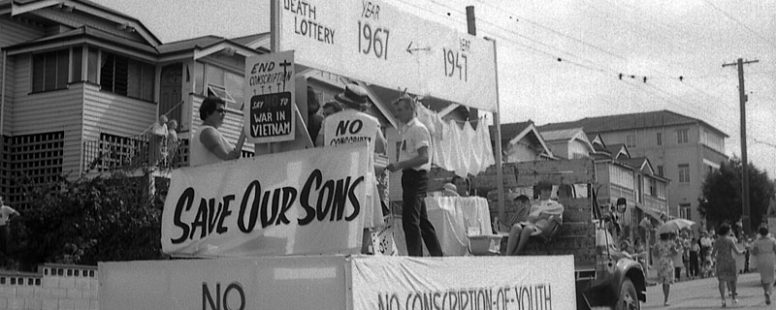Dr Carolyn Collins: special guest speaker on 9 August
Dr Carolyn Collins will be guest speaker at the Oral History Australia SA/NT AGM. Carolyn is a postdoctoral research fellow at the University of Adelaide. Please join us to hear her speak about her oral history project looking at the history of the Save Our Sons movement in Australia.
Date: 9 August 2019
Time: 2 – 4 pm
Place: Bronwyn Halliday Learning Studio, Ground Floor, State Library of South Australia, cnr of Kintore Ave and North Terrace (enter through main glass foyer and turn left; the Bronwyn Halliday room is at the back of the Your Hub area)
Cost: Free, but RSVP is essential to assist with catering.
RSVP by Friday 2 August to: contact@oralhistoryaustraliasant.org.au
Come and join us for afternoon tea, which will include a special birthday cake to celebrate the 40th anniversary of Oral History Australia SA/NT!
Guest speaker:
Oral History Australia SA/NT is very pleased that Dr Carolyn Collins, OHA member and postdoctoral research fellow at the University of Adelaide, has agreed to talk to us about her oral history project.
Carolyn’s doctoral thesis, looking at the history of the Save Our Sons movement in Australia was awarded the 2016 Doctoral Research Medal. A book based on this thesis will be published by Monash University Press next year. Her co-authored book, Up and Doing! 100 Remarkable South Australian Women, will be published by Wakefield Press in December 2019, to commemorate the 125th anniversary of women’s suffrage in SA. She is currently working on an Australian Research Council project to produce a social history of Holden in Australia, including 100 oral history interviews with Holden workers, which will be deposited in the National Library.
Protests with my Mum: Family, Memory, and Activism.
In 1965, angered by the Australian government’s conscription of young men to fight in the Vietnam War, a group of Sydney mothers formed a grassroots movement that rapidly went national. Their single purpose was reflected in its name – Save Our Sons – and for eight long years they sought to do just that, protesting in capital cities and regional centres across Australia. Often it was a family affair with their sons, many of them draft resisters, also joining the protest movement. Others were young boys, forced to tag along with their mothers in the absence of formal child-care. Some faced retribution and bullying at school, their mothers frequently denounced as ‘bad mothers’, ‘traitors’ and ‘a disgrace to womanhood’. Half a century later, as part of a history of the SOS, I interviewed several sons, and daughters, about their memories of their mothers’ part in the movement. Viewed through the prism of familial ties, these memories provide a glimpse of an alternative family life among those who protested, and touching insights into the complexity of relationships between mothers and their young adult sons during what was a tumultuous period of social change in Australia.
